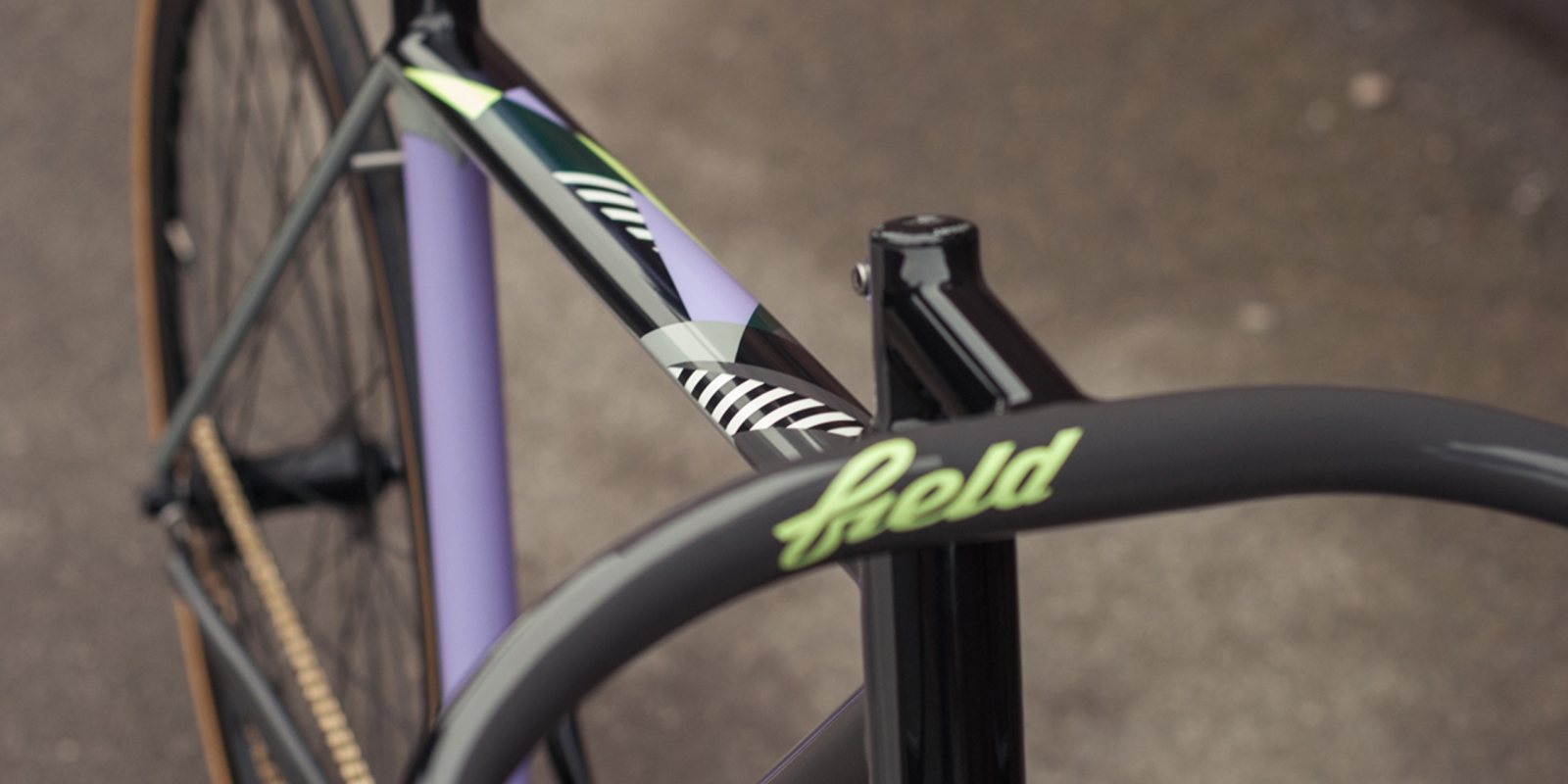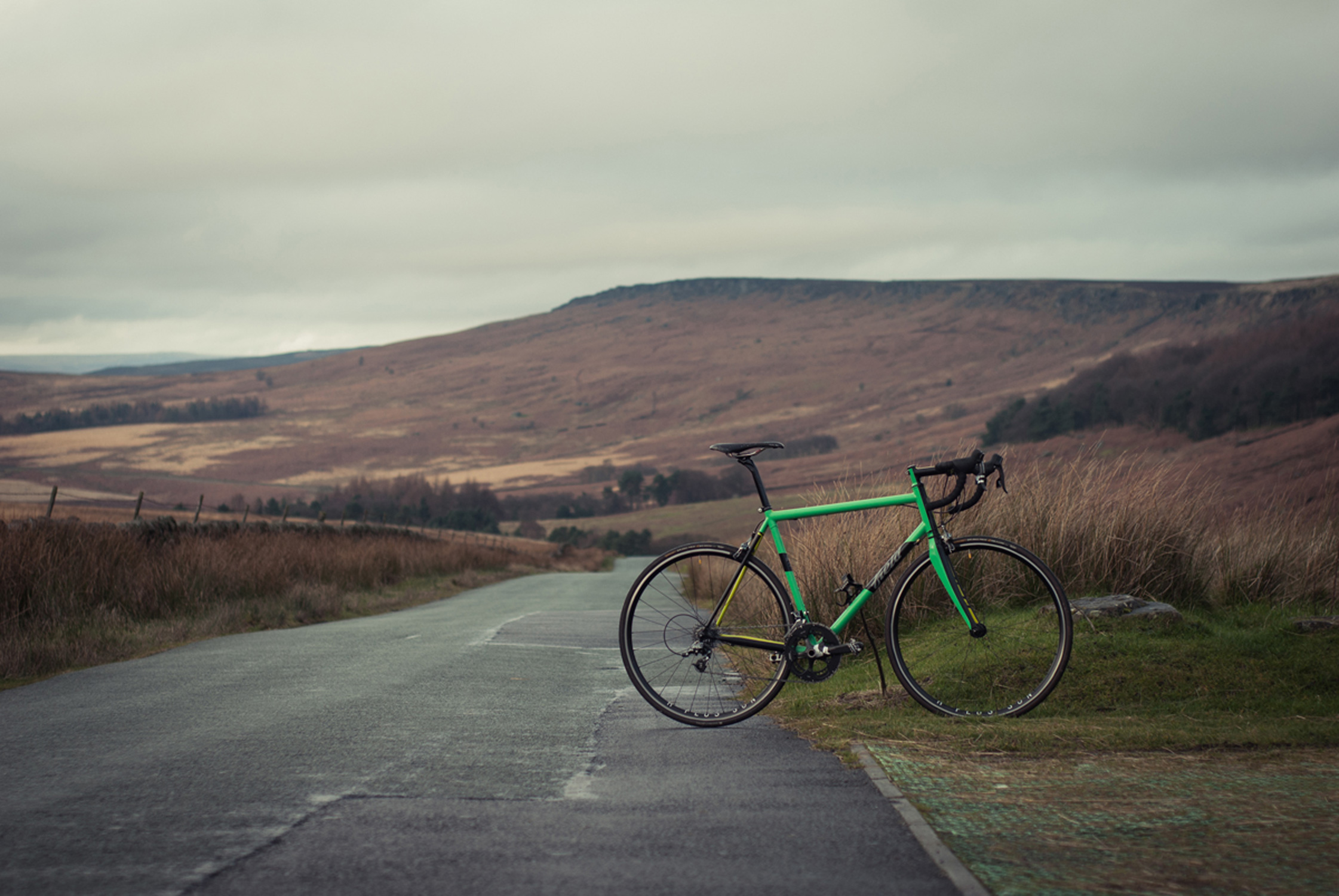Recurring dreams about riding gleefully on the perfect bike are common amongst cycling enthusiasts. The vision of the perfect bike is specific to each cyclist, though – it's one that's sized to precisely fit their proportions, impeccably shaped to suit the use they want out of it, and wonderfully painted in their favourite colours.
Let's face it, those bikes aren't likely to be found on any mass-production line. Harry Harrison at Field Cycles, however, has been turning bike dreams into reality since 2012.
Situating itself in the lineage of Sheffield's steel production and its tradition of small workshops, Field provides a bespoke service, drawing on the craft disciplines of its founders: fine art, engineering, graphic design and manufacturing. Each bicycle frame is built from steel, one at a time and by hand, before being beautifully painted and finished off with "Handmade in Sheffield" either painted on the frame or set into a bronze head badge.
Customers are encouraged to have a chat with the makers at all stages in the production process. The result: a bicycle frame that is entirely unique to its rider. A dream bicycle.
We met up with Harry from Field to find out more.
Harry, you came from a fine art/creative background, what got you interested in frame building and are there parallels with the work you produced as an artist?
A fine art/creative background gives you an eye for detail. More specifically, I think a fine art background gives you a real sense of investment in the things you make. The focus is the object not the economics. I have a passion for creating the best possible object without compromise, which is all folded up in the pursuit of craft. When I was more involved in the art world most of the work I made was very functional: door handles, plug extensions, clothing and furniture – all very normal objects but all made with an obsessive attention to detail. I ended up making frames because two loves converged: cycling and making. Often when I am drawn to a beautiful object my first thought is how do I make it rather than how do I own it.
Field frames are beautiful objects – is it hard to balance the aesthetics and the functionality/ride quality? What gives you the most satisfaction?
The satisfying thing is balancing the two; the ideas and details that make it onto our framesets always simplify rather than complicate. Aesthetically, cleaning up the lines of a frame and simplifying the structure is part of the process of refinement we enjoy.
Commissioning a Field cycle is a bit like buying a bespoke suit. Tell us a bit about the process.
The process normally starts with an email and if at all possible a visit to the workshop. We chat about what sort of bicycle needs to be built, then we look at geometry and fit, the materials – tubes, dropouts, custom built stems, etc. and the components that will be used. I then make a CAD drawing and we start to finalise the design, we make sure all of the contact points are in the right place and the frame looks well proportioned. When the drawing is complete it becomes the blue print for the fabrication of the frame. Whilst the frame is being fabricated the customer starts to work with Tom on the paint design – the input can range from the simple instruction to "go for it" or the request to work with specific colours or details. The built frame then converges with the chosen design in the paint shop, where John begins the time consuming and complex task of immaculately recreating the design. It’s then shipped off, picked up or, if we are supplying a complete bike, built up by us. As we build one frame at a time we have quite a long waiting list and a deposit of £400 secures a spot on the list.
Is there anyone in the industry that you respect and admire?
Lots of people. I am really proud to be part of the new wave of frame builders, but in particular a chap called Ellis Rudd, who gave me a lot of time and energy when I had lots of questions to ask. Sadly Ellis has passed away but his machines are still producing frames and tooling in our workshop.
Tell us a bit about your future plans and dreams for Field.
I want to grow and refine what we do. I’m doing some work with the AMRC Design and Prototyping Testing Centre looking at rapid prototyping technology, which is really exciting. But generally I want to keep on working with talented energetic creative people to build the best possible objects we can and in some small way be part of Sheffield's innovative steel working legacy.












